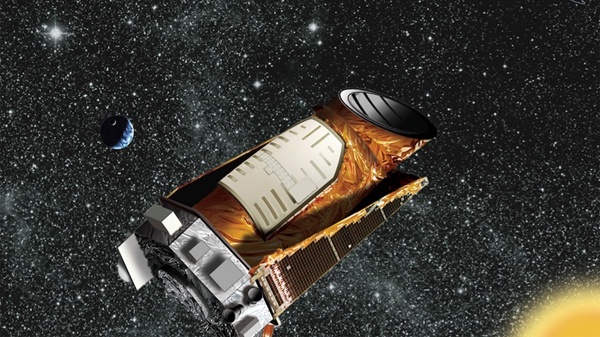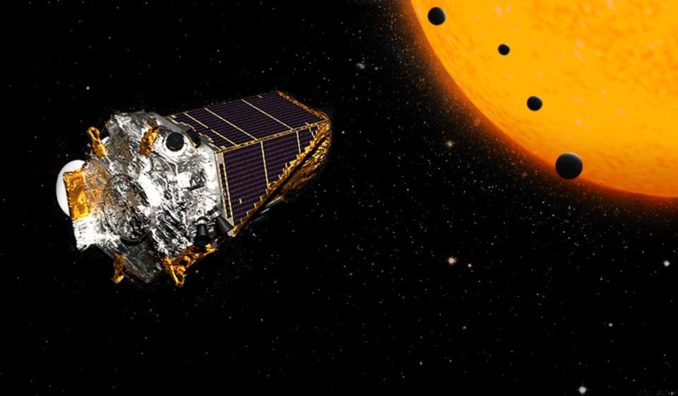
A system of seven sweltering planets has been revealed by continued study of data from NASA's retired Kepler space telescope: Each one is bathed in more radiant heat from their host star per area than any planet in our solar system.

Two exoplanets – Kepler-138 c and Kepler-138 d – appear to have oceans at least 1,600 km deep. That’s about 500 times deeper than the average depth of Earth’s oceans. However, they could be much warmer and under very high pressure.

Recently, an international team of scientists, combined data from Kepler Space Telescope and Gaia Observatory revealed is that half of the Sun-like stars in our Universe could have rocky, potentially-habitable planets.

Researchers have found an Earth-size exoplanet with a pi-like 3.14-day period. Whirling around its star at some 291,000 kph, the planet’s surface temperature is estimated at around 176 degrees Celsius.

A reanalysis of data from NASA's Kepler space telescope has revealed an Earth-size exoplanet orbiting in its star's habitable zone, the area around a star where a rocky planet could support liquid water.

US astronomy student Michelle Kunimoto has discovered 17 new planets, including a potentially habitable, Earth-sized world, by combing through data gathered by NASA.

Scientists working with data from the Kepler mission have discovered an additional 18 Earth-sized worlds. Among the 18 is the smallest exoplanet ever found.

Astronomers have found a third exoplanet orbiting a binary Kepler-47 star system 3,340 light years from Earth, the first, and so far only, multi-planet circumbinary solar system discovered to date.

Japanese scientists utilized a mix of ground and space based telescopes and revealed over 100 new extrasolar planets.

NASA's planet-hunting telescope has run out of fuel after a nine-year mission that found more than 2,600 planets orbiting other stars along with thousands of candidate worlds.

Astronomers reviewing data collected by NASA’s Kepler space telescope have found the first evidence for a possible “exomoon” orbiting a gas giant planet 8,000 light years away.

Using data from NASA's Kepler Space Telescope, an international team has discovered a new exoplanet twice the size of Earth. It orbits its star every six days and is about 10 times closer than Mercury is to the Sun.

Of the thousands of known exoplanets, Kepler-452b has the most ideal combination of UV light exposure and conditions for liquid water.

Nearly a decade after launching NASA’s Kepler telescope has netted 2,650 new confirmed worlds beyond our solar system. It now has paused its observations after on-board sensors detected it is running low on fuel.

Scientists have analyzed data from K2, the follow-up mission to NASA's Kepler Space Telescope, and have discovered a trove of possible exoplanets amid some 50,000 stars.